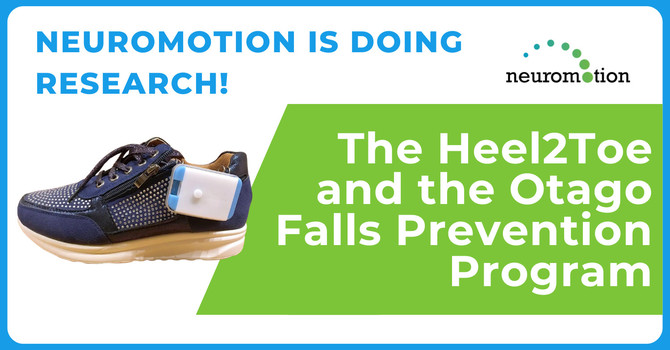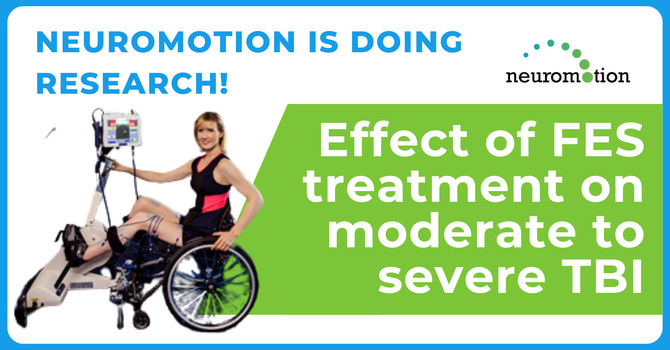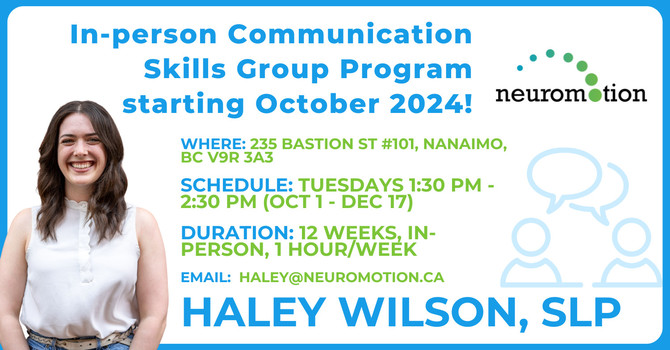
What is a Speech-Language Pathologist (SLP)?
A speech-language pathologist (SLP) is a healthcare professional trained in the assessment and management of communication disorders. SLPs work with individuals across the lifespan on skills related to speaking, listening, reading, writing, and socializing.
Neuromotion SLPs Haley Wilson and Lindsey Stene have experience working with children, teens and adults with developmental and neurological conditions to improve their speech, language, and swallowing abilities. They also work with people who want to improve their communication skills for personal and professional reasons.
What Can I Expect From Speech Therapy?
SLP treatment starts with a comprehensive assessment. During the assessment, your SLP will ask questions about your communication or swallowing concerns, such as when they started and how long they have been going on for. Your SLP may have you do tasks to evaluate your breathing, voice, speech, language, cognitive, and social skills. A swallowing assessment may involve eating and drinking different foods and liquids. Together, you and your SLP will come up with a personalized therapy plan, including but not limited to:
Speech Therapy:
- Articulation Drills: Practice saying specific sounds or words to improve clarity.
- Tongue, Lip, and Jaw Placement: Coaching to coordinate these structures for clearer speech.
Language Therapy:
- Vocabulary Building: Activities to expand and enrich vocabulary skills
- Grammar and Syntax: Exercises to improve sentence structure and language use/comprehension
- Discourse Level Therapy: Activities to support self-expression in connected speech
Voice Therapy:
- Vocal Hygiene: Strategies and tips to care for your voice
- Voice Exercises: Exercises to help you use your voice in a safer and more effective way
Cognitive Communication Therapy:
- Attention and Memory Skills: Techniques to enhance focus and recall abilities
- Problem-Solving and Reasoning: Activities to improve cognitive flexibility and decision-making
- Social Communication Skills: Activities to facilitate improved social interactions
- Conversation, Debate and Negotiation Skills: Role-playing exercises to practice expressing opinions, negotiating, and advocating for oneself
Strategies for Safer/More Effective Swallowing:
- Food and Liquid Modifications: Adjustments to textures and thicknesses of food and drink.
- Environmental and Behavioural Modifications: Adjustments to seating, positioning, and delivery of food and drink to optimize swallowing effectiveness and safety
Technology and Apps for Communication:
- Augmentative-Alternative Communication (AAC) Devices: Tools that help individuals communicate if speech is difficult or non-existent.
- Computer or Tablet-Based Exercises: Interactive programs to practice speech, language, and cognitive skills.
There is no one-size-fits-all solution for communication therapy. Your SLP will work with you to find targeted, meaningful activities to help you reach your communication goals.
Speech-Language Pathologist Areas of Support
- Parkinson's Disease
- Stroke
- Spinal Cord Injury
- Brain Injury and Concussion
- Degenerative Conditions (eg. ALS, PSP or SMA)
- Voice Disorders
SLPs can also support clients with speech, language and swallowing concerns related to:
- Dementia and/or Alzheimer’s disease
- Functional Neurological Disorder
- Head and neck cancer
We also support communication skills not related to a disorder, such as:
- Accent modification
- Professional communication skills
What Does a Treatment Plan Look Like?
Some communication and swallowing concerns can be addressed in a couple of sessions, with individuals choosing to follow up every few weeks or months for regular check ins. Weekly sessions or multiple sessions per week are often recommended in situations where the communication or swallowing challenge is expected to require treatment over a long period of time, or where multiple therapy goals are being targeted at once (e.g.: articulation and negotiation skills for return-to-work).
E.g.: SPEAK OUT! Therapy for people with Parkinson’s Disease is an evidence-based treatment program that usually requires a commitment of 2-3 30-minute sessions per week for 4-6 weeks. Follow-ups are scheduled every 3-6 months after the final session, and additional sessions may be recommended at the discretion of the treating SLP.
Your SLP will be able to advise you on a treatment plan based on some of the following factors:
- Type and severity of the presenting concern
- Family/caregiver support and involvement
- Adherence to home exercise program
- Individual progress in sessions
- Funding
Try out a home exercise: Haley loves to send clients home with activities that are engaging, fun, and target multiple different skills at once, like the New York Times game Connections. You can play it for free here. Connections is great for working on skills like:
- Category identification
- Category belonging
- Identifying similarities and differences
- Vocabulary, including multiple word-meanings
- Attention
- Problem solving
- Cognitive flexibility
Haley Wilson
Contact Me


